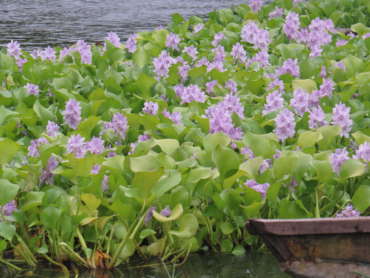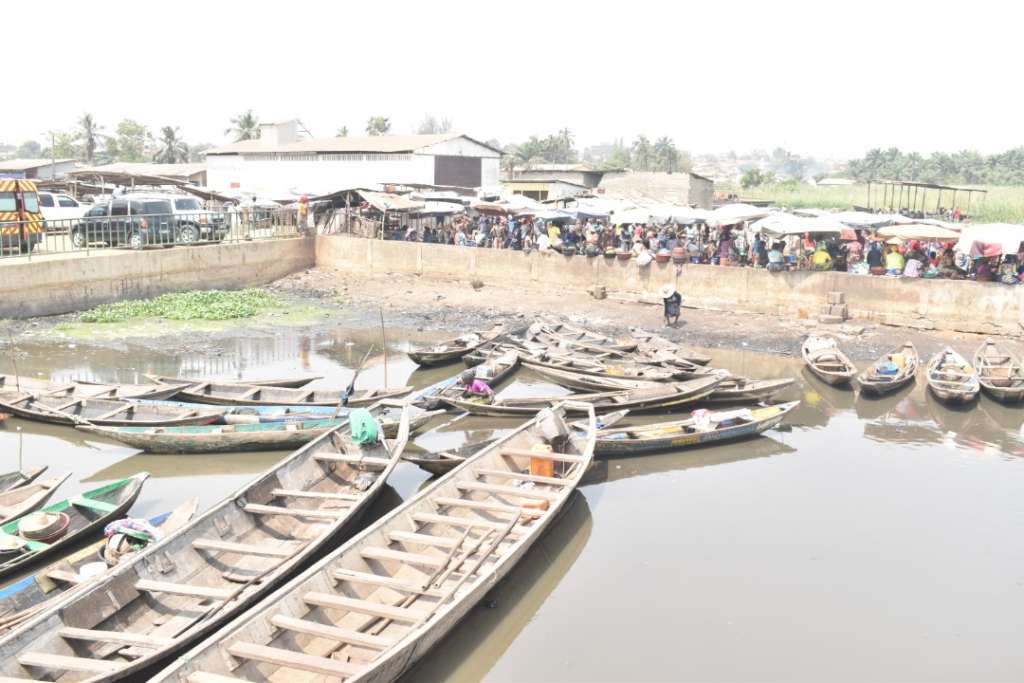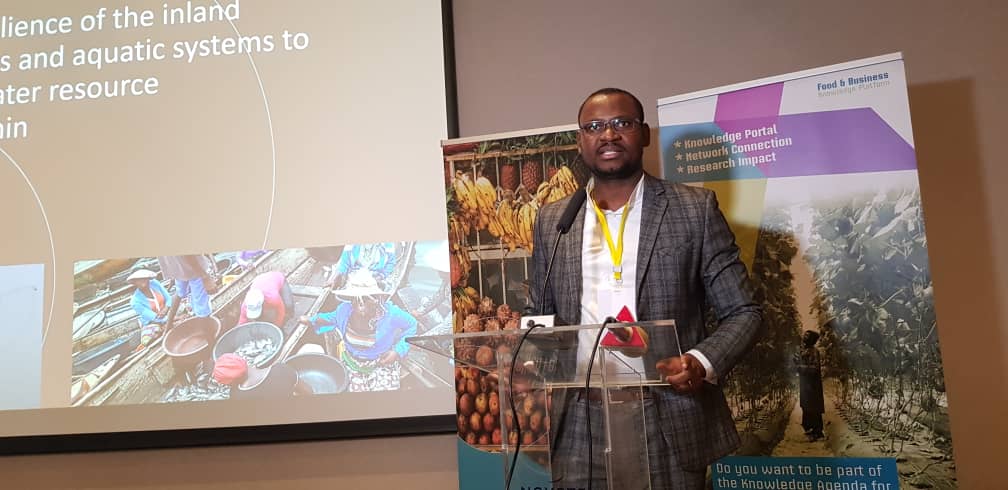Vegetables represent an important component of the diets of rural and urban households in Benin, but poor soil fertility, land degradation and water scarcity mean yields – and earnings – have remained low. To tackle these challenges in Benin’s Lake Nokoué region, between 2013 and 2015, ACED worked to add value to extensive – and invasive – water hyacinth populations, through composting.
In partnership with international non-profit, Gevalor, which promotes waste recycling in developing countries, the first year of the initiative saw 144 market gardeners trained and equipped in collecting and processing the plant into organic compost for enhanced fertilization on their vegetable farms. By the end of 2015, 2,232 tonnes of water hyacinth had been processed into 1,300 tonnes of compost, and studies of the initiative revealed that compost use increased chilli pepper yields by up to 162%, amaranth by 120%, and tomato by 42%.
The initiative also provided training to local women in how to produce handicraft objects, such as baskets and hats, using water hyacinth. Twenty-five women are now self-employed as full-time basket weavers, earning up to FCFA 3,000 (€4.60) per item at local markets, whilst a further 25 are receiving additional training to help them diversify their products.
A second phase of the initiative (2015-2017) aimed to increase compost production with a more efficient water hyacinth harvesting technique that uses nets. This new method increased collected quantities by 39%. The second phase also aimed to develop a more efficient vegetable value chain to increase farmer profits and, in 2016, a multi-stakeholder discussion led to the establishment of a sales stall to promote the vegetables.
It was expected that this would cut out middlemen involvement and increase margins for farmers. To support this, a survey was conducted with vegetable consumers on their expectations and needs; the results highlighted the need for affordable and well-presented vegetable products in order to compete with the alternatives grown using non-organic inputs. The improved marketing techniques – and an advertising campaign held by the initiative to promote the healthy products – has seen average selling prices increase by 19%.
“The additional revenues generated by selling agroecological vegetables help me to diversify the diet of my family and contribute to expenses related to our children’s schooling,” says Rolande Hounmanon, a gardener from Sô-Ava.
Evaluating the environmental benefits
The water hyacinth initiative is also delivering environmental benefits as the weed is processed into compost before it has time to decompose and release harmful methane and nitrous oxide into the environment – thus reducing GHG emissions in the area. A first-of-its-kind methodology for evaluating GHG emissions from water hyacinth, both in its natural environment and during composting, has also been developed by the initiative and submitted to Gold Standard[1] – a voluntary scheme for climate and development interventions that certifies GHG estimation methodologies.
“The ambition to establish a link between the preservation of the global environment and the development of income-generating activities for communities is well aligned with the French Global Environment Facility,” says Xavier Duporge, former Secretary General of the French Global Environment Facility, which funded the initiative between 2013-2015. The initiative was also recognized as the ‘Outstanding Practice in Agroecology 2019’ by the World Future Council and has been featured on international media channels, including France 24, Radio France International and Deutsche Welle.
Looking forward, ACED has developed a scaling up strategy to double the consumption of locally-produced vegetables in south Benin by 2025. ACED has also carried out a review of the organic certification schemes that are available and affordable to smallholder farmers to certify the water hyacinth compost production system.
[1] https://www.goldstandard.org/
This blog post emerged from the 10-year impact report of ACED. You can download the full report for more information.



